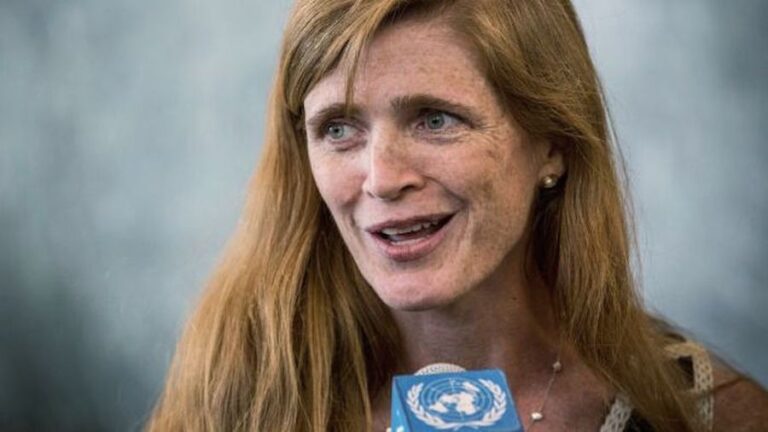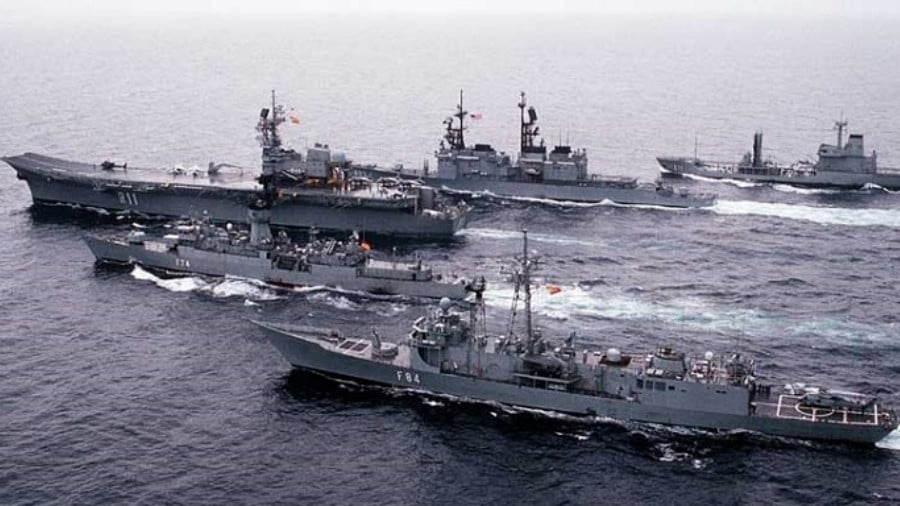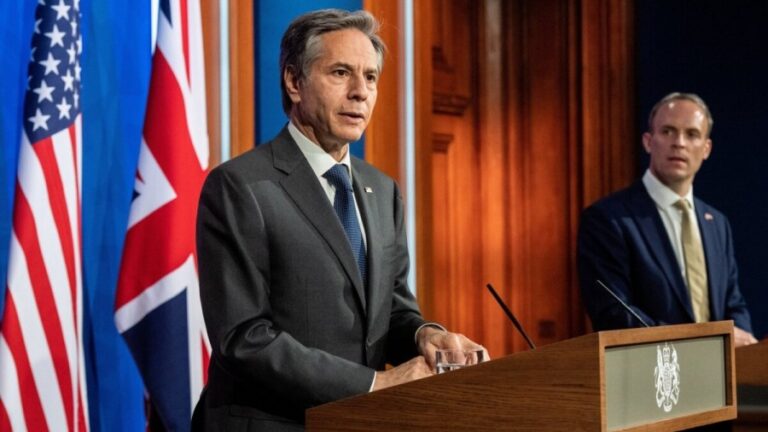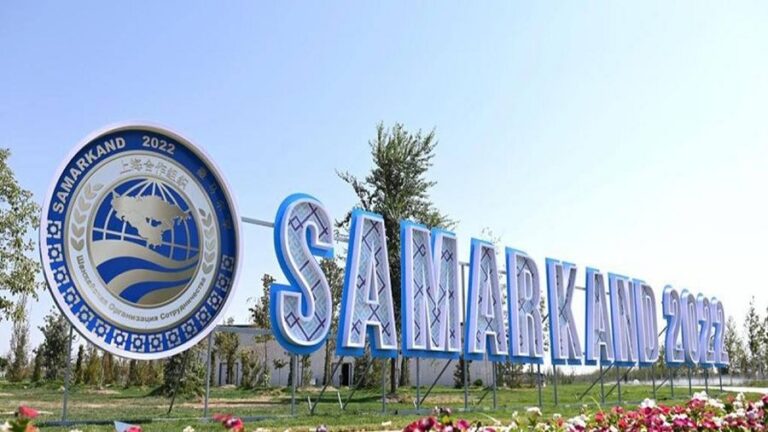The European Union Boycotts Russia’s Syria Initiatives
The hopes of the Russian diplomats for the US, the EU countries and the UN humanitarian agencies’ participation in the reconstruction of Syria and the return of refugees to its territory were dashed. At the same time, China intends to intensify its participation in the conflict, and Damascus, with the support of the Russian Aerospace Forces, is working on the return of the last stronghold of Islamists, province of Idlib, under its control.
In the Syrian crisis, China is trying on the role of mediator between the opposition and Damascus. Taking into account the location of the bulk of the pro-Saudi opposition (banned in Russia Jabhat al-Nusra) in Idlib, as well as the mobilisation of Moscow, Tehran and Damascus in this province after the elimination of the de-escalation zone in the south, it can be concluded that Beijing is trying to determine the feasibility of active participation in the Syrian dossier in relation to Idlib with access to more active interaction with Damascus in the medium term, including the participation in the large-scale infrastructure projects to restore the economy of Syria.
On August 3, the Chinese Ambassador to Syria and the Chinese military attaché discussed with representatives of the Syrian Arab Republic (SAR) the possibility of involving their security forces in the government formations’ actions in Idlib. With the exception of UN peacekeeping operations, Beijing avoids taking part in hostilities beyond its own borders or its immediate region. The operation in Syria could be the first step for a more active presence in the areas of China’s national interests, except for the Chinese military base in Djibouti.
For China, first and foremost the important matter are the militants from the Islamic party of Turkestan, operating in Idlib. Beijing is interested in destroying the Uighur separatists before they return to central Asia or China. Therefore, if China decides to support the liberation of Idlib campaign, it will be of a local nature and relate to the neutralisation of leaders and militants-Uighurs. In this case, participation will be expressed in the direction of military advisers, intelligence structures and Special Forces. During the consultations, the military attaché raised the issue of the involvement of the Chinese police unit “Snow Leopard” in such operations.
From the point of view of possible foreign policy risks for its participation in the operation in Idlib, Beijing should take into account the possible complication of relations with the Kingdom of Saudi Arabia (KSA) and Turkey. Ankara sees the Uighurs as a loyal force and a tool to strengthen its influence in Idlib in opposition to pro-Saudi groups. So China will have to carefully approach any military intervention in Syria. Beijing needs to coordinate with Russia, the Syrian government and Turkey to avoid serious complications. The relevant statements from officials in Beijing, as well as the results of negotiations between Russia, Iran, Syria, Turkey and China on the status of Idlib may become indicators of the possible participation of the Chinese military in the Idlib operations.
Idlib – Barganing Chip
Currently, Idlib is a zone of residence of the irreconcilable opponents of President Assad, which is freely functioning with the permission of Moscow, Damascus, Tehran and Ankara. The existence of this stronghold of Jabhat al-Nusra is incompatible with Moscow and Damascus’s plans for the post-war structure of Syria. The question now is not even how this zone will exist, but how to eliminate the pro-Saudi component of the resistance. The solution to the problem of Idlib is the departure from the scene of one of the main external sponsors of the resistance, namely the KSA. For Saudi Arabia, the elimination of the pro-Saudi armed wing of the opposition in Syria means a sharp decline of its influence in this part of the Middle East, which changes the balance of power in the entire region.
To understand the situation with Idlib more clearly, it is necessary to recall the positions of the parties (Russia, Iran and Turkey). There is a consensus that Idlib is a zone where Ankara is the guarantor of peace. But the Turks do not agree with the position of Moscow and Damascus to eliminate Jabhat al-Nusra. Ankara stands for their “peaceful” absorption, following the example of the southern de-escalation zones, and Russia stands for a combination of carrot and stick, believing that until the militants see the prospect of their destruction, they will not compromise. The Turks want to keep this area under their control as an argument in the dialogue with Damascus and create a Sunni force there that will oppose Damascus, claiming a leading role in the executive. At the same time, they put pressure on the Kurds of northern Syria, fortunately, expectations for the implementation of Turkey’s agreements on the Kurdish issue with the United States, proved unrealistic.
In Astana, in July, Turkey was given time before the next meeting in the autumn to demonstrate that their proposals for the peaceful absorption of the pro-Saudi segment of the resistance are being implemented successfully. So far it does not work. Terrorists from Jabhat al-Nursa carried out in the province of Idlib arrests of warlords from groups that agree to reconciliation with the Syrian Army. The newspaper “Al Akhbar” reported this on August 10. At least 50 militant commanders who have come into contact with the Syrian command are under arrest. Jabhat al-Nusra has imposed a curfew in 17 locations in southeast Idlib, fearing that their inhabitants will revolt against gangs and call for help to the government troops, as happened earlier in East Ghouta and in the southern province of Deraa.
Terrorists control about 60 percent of the province, which is located on the border with Turkey. The rest of it is in the hands of the opposition from the Syrian Free Army and Islamic radical groups, the largest of which are Ahrar al-Sham and the Nureddin al-Zingi Brigades, which cooperate with Ankara. On August 1, it was announced in Idlib the creation of the National Liberation Front (NLF) coalition, which includes 14 opposition groups. Its numbers are estimated at 40 to 50 thousand fighters. The figure is clearly overstated; with such forces the issue of the Saudi presence in Idlib would have been resolved. The head of the NLF is the former field commander of the Faylak ash-Sham Brigade, Fadlallah al-Hajji. According to Al Akhbar, Ankara intends to use these powers to displace Jabhat al-Nusra from Idlib. Pro-Turkish groups tried to take control of Idlib a couple of years ago. It ended then in a split of Ahrar al Sham and the absorption of part of its military wing Jabhat al-Nusra
Damascus reserves the right to intervene in the situation. On August 10, the Syrian Air Force and artillery attacked Jabhat al-Nusra bases near the administrative border between the provinces of Hama and Idlib. As reported by the agency SANA, the attack on the militant positions was in response to the violation of the ceasefire in the northern de-escalation zone. Command centres of the militants and weapons depots in areas of Tal Wasat, Zeyarah and Mansura were destroyed, and there were killed and injured in the ranks of Jabhat al-Nusra. Strikes were carried out also on the bases of the group Kataib al-Issa in the settlements of Kafr Nabudah, Tal al-Sakhr and Ma’rkabah, 48 kilometres northwest from the provincial capital, Hama. According to the agency SANA, foreign mercenaries are fighting in the ranks of this group, infiltrated from the Turkish border into the valley of Suk al Ghab near the river Orontes, from where they attack the villages and army checkpoints.
As reported by the news portal Surya al-En, Syrian pilots dropped leaflets from planes over the city of Taftanaz in Idlib province. In them, the command of the Armed Forces of the Republic called on local field commanders to follow the example of the armed opposition in East Ghouta and southern Syria, who agreed to reconciliation with the authorities. The Syrian army is preparing an operation to liberate the city of Jisr al-Shugur, captured by terrorists in April 2015. It stands on a mountain pass through which passes the strategic highway Latakia-Aleppo. In case of success of the operation, troops will be able to cut off the southern region of Idlib and block large outposts of armed groups in Khan Shaykhun, Ma’arat al-Nu’man and Kafr Zita. As far as can be seen, regardless of Ankara’s actions, it is planned to complete the dissection of the Idlib enclave into two parts, which the government forces tried to do on the eve of the aggravation of the situation in the south in the spring of 2018. Apparently, the operation will start in the autumn and will be synchronised with the military activity of pro-Turkish groups in Idlib.
The Army is Waiting for Orders
The command of the Syrian Armed Forces is sending reinforcements to the provincial centre of Aleppo (360 Km from Damascus) in the north of the country, where an operation against terrorists from Jabhat al-Nusra is being prepared. According to the newspaper al-Watan, the troops will conduct an attack on the towns of Kafr Hamra, Khoreitan, Anadan, al Bayanun and Khayan, to clear them from the gangs shelling the western neighbourhoods of Aleppo. The task of the government forces is to regain control of the southwestern suburbs of Aleppo, where Ahrar al-Sham and Nureddin al-Zingi operate. They are holding settlements near the highway going to the checkpoint Bab al Hawa on the Syrian-Turkish border. Their main outpost is located in Mansura, Khan al-Asal and al Atarib. According to al-Watan, the operation is also aimed at securing the eastern outskirts of Greater Aleppo, which will allow the reopening of the international airport in Nayreb.
The army offensive will begin on the front line near the administrative border of the provinces of Aleppo and Idlib, where the military airfield Abu Duhur serves as a base for government forces. The troops will simultaneously attack the bases of the armed groups in the northeastern provinces of Latakia and Hama in order to eliminate the threat of their invasion of the coastal areas and the valley of Suk Al Ghab near the river Orontes. The Syrian Air Force is dropping leaflets over the cities of Jisr ash-Shughur, Taftanaz and Saraqib (Idlib province), seized by armed groups, urging militants to lay down their arms and surrender, following the example of the armed opposition in East Ghouta. These three cities are part of the de-escalation zones established in 2017 in Idlib province and surrounding areas.
Preparations are under way to launch military operations by government forces against not only pro-Saudi groups, but also, in some cases, pro-Turkish groups, which is particularly evident in the planned military operations in Aleppo. The beginning of the offensive is constrained only by Moscow’s position, which took a pause to determine the conditions for a compromise with Ankara on the actions in Idlib. The main question is, how much time Moscow averted to Ankara in order to separate radicals and moderates oppositions and to shift off its responsibility for the fate of the irreconcilable opposition?
The UN has Betrayed Syria
The US Secretary of State Mike Pompeo discussed with Special Envoy of the UN Secretary General for Syria Staffan de Mistura prospects for the return of refugees to Syria, as well as the need to “prevent the emergence of a humanitarian crisis in the city of Idlib”. This is stated by the press service of the State Department. Pompeo made it clear that although the United States supports the return of refugees to Syria, this should only happen when the situation in Syria is sufficiently safe, as well as with the participation of relevant UN entities. Pompeo and de Mistura agreed that “discussions on reconstruction are premature in the absence of a political solution, which in any case should lead to constitutional reform and open and fair elections”.
The State Department indicated that they discussed the progress in the formation of the so-called Constitutional Committee of Syria, the agreement on which was reached on the results of the congress of the Syrian National Dialogue held in Sochi on January 30. This structure, together with de Mistura, will have to prepare proposals for the elaboration of the county’s constitution. Earlier, the head of the press service of the State Department, Heather Nauert, recalled that the United States still considers the Geneva process the only viable way to find a political solution to the crisis in Syria, calling the other negotiations secondary. She spoke about the Astana format in such a fashion. Nauert said that in the near future, Washington will announce a doubling of efforts to support the Geneva process.
Thus the leadership of the US State Department together with relevant senior officials of the UN refused to participate in the campaign of the Ministry of Foreign Affairs of the Russian Federation on the organisation of the “massive return of refugees” to Syria. Having laid out this proposition through the Russian-American summit as a “new unifying idea for all foreign sponsors of the Syrian dossier”, the Russian Foreign Ministry believed that President Trump’s “Yes” in response to such an initiative is the solution. The US Secretary of State made it clear that there is no question of any return of Syrian refugees under Moscow’s auspices, as well as any initiative that can give Russia the illusion that it began to interact as a partner. The West will talk in this way only when it cannot do without the participation of the Russian side. At present, these are issues related to the competence of the coercive unit. That is why the National Security Advisor of the United States J. Bolton meets with Russian colleagues on a regular basis.
The strategy of the Ministry of Foreign Affairs of the Russian Federation is clear: any way to break through the foreign blockade of Russia and to stimulate the collective West at the beginning of the joint work in the full format. In this regard, the topic of Syrian refugees and their return to their homeland was born. Europeans had to bite, for them it is important. And for the Lebanese and Jordanians, the question is urgent: “their” Syrian refugees are about six million people. And, theoretically, a joint plan for the restoration and improvement of Syria had to be put on the agenda. There are no other motives for the intensification of diplomatic and other efforts for the massive return of Syrian refugees. Neither infrastructure nor mass restructuring of the social consciousness is ready in the country. Who counted how many radicals and irreconcilable opponents of Bashar al-Assad’s regime are among the refugees? In the framework of the campaign we recreated the rear base anti-Assad resistance inside Syria.
The main reason for the failure of the initiative is that the West did not go for it. There, despite all disagreements, they are united in politically ignoring Russia. No initiatives from Moscow, even on the most topical issues for Europeans, will be accepted. The actions with the participation of Russia and France, when humanitarian aid was delivered to East Ghouta, gave rise to excessive illusions in the Russian Foreign Ministry, from which came the initiatives for the return of Syrian refugees. As for the UNHRC, this agency outright fulfills the US order for the evacuation of member of the White Helmets from Syria, and to believe that it will decide to cooperate with Moscow is naïve. This is a joint position of the UN, which became clear after Pompeo’s meeting with de Mistura. The West is not going to restore the destroyed infrastructure of Syria under any circumstances. The appeals of the Foreign Ministry of the Russian Federation are ignored. This means a collective EU boycott of the Russian initiative. The same is true of Jordan.
The Lebanese leadership, given the influence that Iran has in that country, would most likely attempt to expel Syrian refugees from its territory. Beirut has enough problems with the Palestinians to look calmly at the presence of Syrians in Lebanon. However, according to external observers, the number of people willing to voluntarily return to their homeland does not exceed three thousand, despite the fact that this number will instantly fall to zero in the event of an intensification of the confrontation in Syria or violent actions against the returnees. The big question is, who in Lebanon will be ready and able to participate in the deportation of refugees to Syria, if such a decision is taken? Without victims, by definition, it cannot be implemented, which means the humanitarian risks that Moscow and official Damascus will be guilty of.
As for Turkey, the return of Syrian refugees into the territory controlled by Assad is not visible in the future. Many of them were assimilated in the country (Ankara is making significant efforts in this), and Erdogan needs them as a tool of pressure on the EU, allowing him to receive billions of euros from Brussels, keeping the European Union, primarily neighbouring Greece with its complex relations with Turkey and Germany as the goal of most illegal immigrant, under constant pressure. In addition, he considers Syrian refugees as potential residents of the Turkish-controlled north of Syria as opposed to the Kurds. So their return is out of the question.







